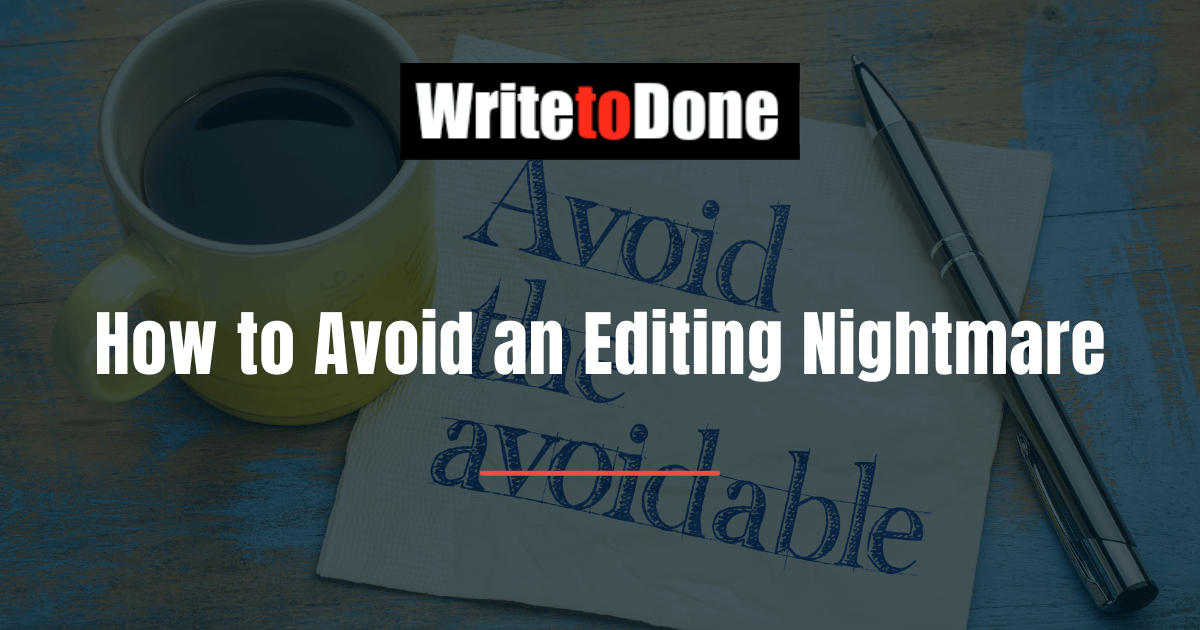If you’re serious about making your book the best it can be, or you’ve been around the publishing/self-publishing arena for awhile, then you know the benefits of professional editing for your book.
There are lots of people claiming to be freelance professional editors out there, however, and editing services are no chump change. It’s a serious investment in your book, so you’ll want to be sure you find the right one.
Thankfully, if you take responsibility to educate yourself, there are simple things you can do to avoid hiring the wrong editor. A little bit of time and energy up front will save you a lot of time, hassle, and money in the long run.
Learn what editors do
There are various levels of editing. Editing may provide a broad overall manuscript critique to correcting the tiniest details of proofreading. But it’s not all done at the same time.
Here is a summary of the various levels of services you may see on editors’ websites:
Manuscript assessment
An editor will read your manuscript and provide you a broad assessment or critique of your book. The editor will point out the strengths and weaknesses of your book, giving you advice on how to improve the book.
Developmental editing
A developmental editor also looks at the big picture of your book. They take special note of the overall structure and development of your book. They focus on the strengths and weakness of the plot, character development, pace, and flow of your story.
Line editing
Line editors will make your writing smoother by focusing on choice of words and how the sentences and paragraphs are structured. Their overall goal is to make your story and writing sound good to readers.
Copyediting
Copy editors primarily focus on correct grammar in your writing. They check for commonly confused words, punctuation errors, and spelling mistakes.
Proofreading
The final level of editing for most books is proofreading. These editors are checking for the tiny details overlooked by you and previous editors. Their primary job is to fix typos or ensure consistency in formatting throughout your work.
When you have an understanding of these various roles editors do, you’ll be in a better position to find the editing services you are looking for.
And if you’re more confused now than you were before, don’t sweat it. Most editors will provide a free consultation with you to help you decide what your book needs, and any credible editor will be able to tell explain these different types of services to you.
One thing to note is editors may use these terms in various ways, or they may use different terms altogether. When it comes time to talk with an editor for your work, find out exactly what s/he does for editing so there are no surprises. More on this later…
Look for editors in the right places
When I first searched for “hire an editor,” one of the top results is Fiverr. While Fiverr is great for lots of things, I have not heard many good things from other self-publishers for finding book editors here.
Instead,
- Ask for personal recommendations from your writing friends or those in writing social media groups or forums. There’s not much better than receiving a recommendation from someone else who has been in your exact position before.
- Use a marketplace for vetted professionals who have been screened for you already.
- Search Upwork or LinkedIn for book editors
- Or search directories such as the Freelance Editors Association. One note is membership here means the person paid for a membership. There are no additional qualifiers to become a part of this directory.
Be crystal clear about the editing services
After you’ve made sure your book is ready for editing, you’ve learned about the different types of editing, and you’ve found a few editors to consider, the last important step for avoiding the wrong editor is to get clear information about the editing services.
Ask the editors you’re considering things like:
- what their services include and don’t include
- how they will make the changes or suggestions
- what the total cost for the work and how it was calculated
- how payment is accepted and when it is expected
- what the estimated timeline is
Lots of editors will use contracts, while some communicate via email, yet others will talk over Skype or the phone. No matter how you talk with editors, ask lots of questions and be sure you’re comfortable with the answers before moving forward.
Conclusion
If you take the time to learn what editors do (and don’t do), assess your book and clarify what you’re looking for in an editor, and find editors from trusted recommendations or websites, you should be well on your way to avoiding the wrong editor…and finding the right one.
















